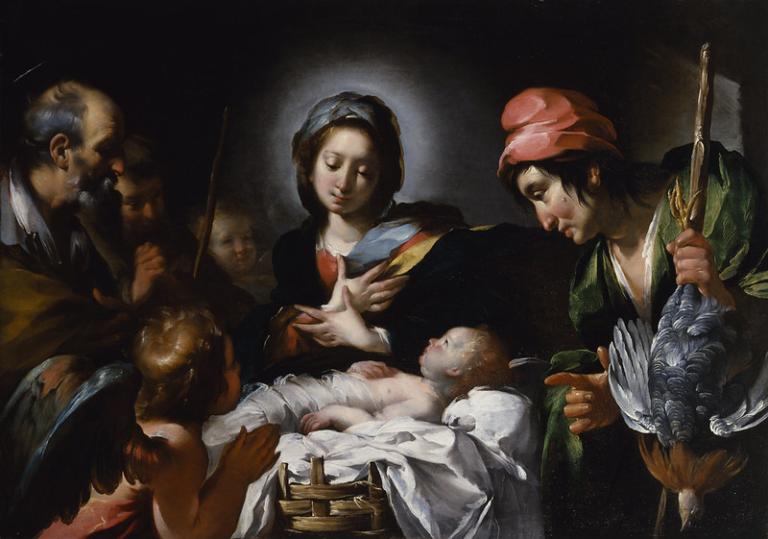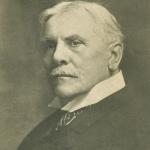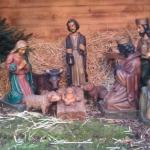Merry Christmas to all my readers, every one of whom I appreciate more than I can say! Christmas falls on a Monday this year, which turns our customary Monday Miscellany into a Christmas Miscellany, covering the following topics:
God the Baby; the world Jesus was born into; and Christianity, paganism, and the gospel.
Also, on Friday and next Monday on New Year’s Day, this blog will come out from behind the paywall so all can participate in our annual custom of first reviewing the predictions that readers made for 2023, and then making new predictions for 2024.
God the Baby
Christmas is such a unique idea that most non-Christians accept it, and I think sometimes envy it. If Christmas is the anniversary of the appearance of the Lord of the Universe in the form of a helpless baby, it’s quite a day. It’s a startling idea, and the theologians, who sometimes love logic more than they love God, find it uncomfortable. But if God did do it, He had a tremendous insight.
People are afraid of God and standing in His very bright light. But everyone has seen babies and almost everyone likes them. So, if God wanted to be loved as well as feared, He moved correctly here. And if He wanted to know people, as well as rule them, He moved correctly, because a baby growing up learns all there is to know about people.
If God wanted to be intimately a part of Man, He moved correctly. For the experience of birth and familyhood is our most intimate and precious experience.
So, it comes beyond logic. It’s what a bishop I used to know called a kind of divine insanity. It is either all falsehood or it is the truest thing in the world. It is the story of the great innocence of God the baby. God in the power of Man. And it is such a dramatic shot toward the heart, that if it is not true, for Christians, nothing is true.
So even if you did not get your shopping all done, and you were swamped with the commercialism and frenzy, be at peace. And even if you are the deacon having to arrange the extra seating for all the Christmas Christians that you won’t see until Easter, be at peace. The story stands.
It’s all right that so many Christians are touched only once a year by this incomparable story. Because some final quiet Christmas morning, the touch will take.
Remember Harry Reasoner? Remember when journalists occasionally would say something like this? This is the 50th anniversary of that broadcast, a time when the nation and the world were also in a very dark place. That one phrase will haunt me for Christmases to come: “God the Baby.”
The World Jesus Was Born Into
You think times are bad now? That our government is corrupt? That our country is dysfunctional? That violence in the world is out of control? Wait until you learn what was going on when and where Jesus was born.
Historian Philip Jenkins will enlighten you about this in his post The Year Jesus Was Born. I’ll get you started, then click the link for the rest:
Scholars differ on the exact birth-date of Jesus of Nazareth, though a fair consensus holds that it was not in the year 1. Many favor a date in or around 4 BC, and for the sake of argument, let us take that as accurate. If so, the birth occurred during or near a truly dreadful time in the history of what was already a troubled and turbulent land: arguably, the story has a special new relevance in the horribly violent conditions in that region today. Although these events are familiar to scholars, they are not at all well known by non-specialists. This is unfortunate, because memories of this crisis certainly shaped memories and perceptions for decades afterwards, and conditioned attitudes during Jesus’s lifetime. If we don’t understand those conflicts, we are missing the prehistory of the earliest Jesus Movement. And they do provide a necessary, if unsettling, context for the Christmas story we recount at this time of year. Was this really what that first Christmas was like?
Christmas, Paganism, and the Gospel
Anthony Costello has written a fascinating post on the conflict between Christianity and Paganism–how this begins with the ancient Hebrews, how this conflict is a major theme of the Old Testament, and how the coming of Christ at Christmas killed paganism and for all.
Read the whole piece. I’ll quote a few paragraphs–without the connections between them, with some being from the scholars he quotes–to give you a sample. But, having praised it, I then want to say a few words of criticism.
From Anthony Costello, The True Meaning of Christmas: The Death of Paganism, at Theological Apologetics:
Historian Paul Veyne characterized the pagan gods this way:
The pagan gods, by contrast [to the biblical God], live their lives and are not confined to a metaphysical [transcendent] role. They are part of this world, one of three races that populate the earth: animals, which are neither immortal nor gifted with reason; humans, who are mortal but reasonable; and gods, who are immortal and reasonable. So true is it that the divine race is an animal genus that every god is either male or female.
Veyne, A History of Private Life: From Pagan Rome to Byzantium (208)
Moreover, for the most part, all cultures around the world had this basic understanding of the world: that the world was enchanted with god-like beings or divine, mysterious powers. This was roughly the same for the ancient Greeks, as well as the Algonquins. The philosopher, Charles Taylor, described this ancient, pagan world as “enchanted,” meaning that ancient cultures experienced the natural world as imbued with “spirit agents”– innate, mysterious powers that had their own wills and intentions, moods and attitudes. . . .
In contrast to this pagan view of nature, there were a handful of ancient communities that believed roughly the opposite of this: that there was only one God. Further, this God was separate from and transcendent to the realm of nature, i.e., from the cosmos. Following logically from this, this God, and only this God, was eternal and uncreated and that the world human beings inhabited was not eternal or uncreated, and, likewise, neither were its gods. The most obvious and relevant example of a community like this were the Israelites. . . .
The history of Israel is the history of a persistent spiritual and physical battle between the following: between Yahweh the Creator and others of His creatures who rebelled against Him; between the belief in one, big God and belief in many, little gods; between the one, revealed religion of the Israelites and the many speculative religions of the pagans; between God’s people and not-God’s people; between the transcendent and the immanent; between miracles and magic; between light, love and liberty and darkness, bondage and the power of death.
When Jesus comes, He will cast out devils and defeat all the powers of darkness. And by His death and resurrection, he founds His church, which will convert the world from paganism. I like his explanation of St. Peter’s confession that Jesus is “the Christ, the Son of the Living God,” and how Jesus promises that “on this rock I will build my church, and the gates of hell shall not prevail against it” (Matthew 16:13-19).
The word translated “hell” is actually “Hades,” which is the name both of a place (the realm of the dead) and a god (the god of the dead). “Jesus’ point here is crystal clear: He is going to initiate something new, a new dispensation of God’s grace, the next phase of the battle plan that will destroy the “gates” of Paganism’s main headquarters: hell, the realm of the dead.” And he reminds us that “gates” are for defense, not offense. The figure of speech isn’t that hell is attacking the church. The church is attacking hell! And the walled fortress of Hades will not be able to prevent the church from casting down its gates and sacking the city.
My problem with this reading is that the destruction of paganism is seen as “the true meaning of Christmas.” That would be what St. Paul said: “Christ Jesus came into the world to save sinners, of whom I am the foremost” (1 Timothy 1:15).
Not only did Christ Jesus come, to save sinners, but he came for St. Paul, who thought of himself as the worst of sinners. And by extension, He came “into the world” at Christmas for me and for you.
Luther said that the chief words in the Sacrament are “for you.” Similarly, Christ coming into the world for you makes Christmas the purest Gospel.
I think Christ saves us by delivering us from the power of sin, death, and the devil, so this would include paganism. I am sure that Costello believes this. I just wish he would have foregrounded the Gospel more.
Those in the Reformed tradition seem especially preoccupied with the threat of paganism, including the alleged “idolatry” of accepting anything physical (water, bread, wine) as a means that God uses to manifest Himself. And their doctrine of the Limited Atonement keeps them from an unreserved proclamation to everyone that Christ came into the world “for you.”
But, another definitive Biblical text about the true meaning of Christmas is the first chapter of John’s Gospel: “In the beginning was the Word, and the Word was with God, and the Word was God. . . .And the Word became flesh and dwelt among us” (John 1:1, 14). And the “for you” comes a few verses later, when John the Baptist proclaimed “Behold, the Lamb of God, who takes away the sin of the world!” (John 1:29).
Illustration: “Adoration Of The Shepherds” [c.1615] by Bernardo Strozzi, via Flickr, CC BY-NC-SA 4.0 Deed | Attribution-NonCommercial-ShareAlike 4.0 International














